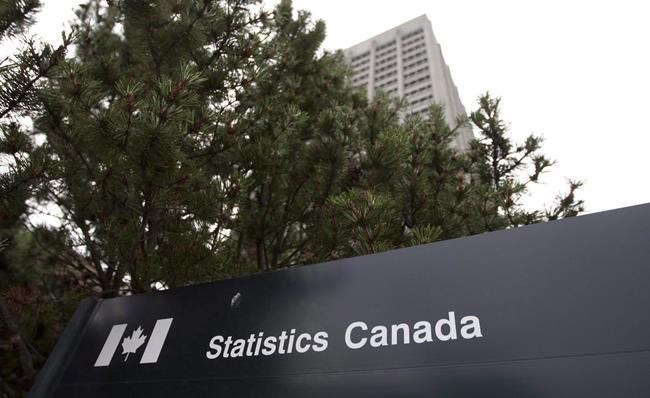OTTAWA — The Canadian economy grew faster than expected in the first three months of the year and likely expanded again in April, fuelling speculation that the Bank of Canada will raise interest rates again when it meets next week.
Statistics Canada reported Wednesday real gross domestic product grew at an annualized rate of 3.1 per cent in the first quarter of 2023.
That growth beat out the federal agency’s own forecast of 2.5 per cent for the quarter. A preliminary estimate suggests the economy expanded by 0.2 per cent in April after remaining flat in March.
The Canadian economy has managed to continue outperforming expectations, despite the Bank of Canada hoping high interest rates would cause a more profound pullback by consumers and businesses.
"It is a little surprising the resilience, I would say, of the Canadian consumer ... just given the amount of interest rate hikes that had been put in place over the course of the previous year," said Dawn Desjardins, chief economist at Deloitte.
The Bank of Canada's key interest rate sits at 4.5 per cent — the highest it’s been since 2007.
The ongoing resilience in the economy is raising the odds of another rate hike, economists say, as the Bank of Canada heads toward its upcoming interest rate decision next week.
"The run of sturdy data undoubtedly raises the odds that the Bank of Canada needs to go back to the well of rate hikes, and even puts some chance on a move as early as next week's policy decision," BMO chief economist Douglas Porter said in a client note.
But Porter, along with other commercial bank economists, say that the central bank may delay the decision to raise rates again until the summer.
"However, given the uncertain backdrop and the possibility that inflation took a big step down in May, the Bank of Canada could opt to remain patient for a bit longer and signal that it's open to hiking in July if the strength persists."
The federal agency says growth in exports and household spending helped spur growth in the first quarter.
Meanwhile, slower inventory accumulations as well as declines in household investment and business investment in machinery and equipment weighed on growth.
The household spending figures show spending up on both goods and services in the first three months of the year, after minimal growth in the previous two quarters.
However, Statistics Canada noted that disposable income fell for the first time since the fourth quarter of 2021. The federal agency says disposable income declined by one per cent, largely due to the expiration of government measures aimed at helping people cope with inflation.
The combination of higher spending and lower income has pushed down the household saving rate.
Economists have been struggling to get a read on the economy as data has proven to be volatile. Desjardins says converging forces, from the COVID-19 pandemic to changing demographics to population growth, are to blame.
"There are a lot of things that are changing within the economy. And it does make it very challenging to really zero in on what is that one factor that is driving this growth, or is going to be the one that's going to drive us into a much slower growth trajectory," Desjardins said.
Forecasters were previously expecting the Bank of Canada's aggressive rate-hiking cycle, which began in March 2022, to push the economy into a recession as early as the end of 2022.
Those predictions have turned out to be too pessimistic, but economists like Desjardins are still counting on a slowdown this year.
"I do think that households are going to start to feel the squeeze," she said.
How bad the squeeze will be will depend on how hard the labour market is hit, Desjardins said. So far, the jobs market has kept its steam as the unemployment rate hovers at five per cent, just above the all-time record-low of 4.9 per cent.
The central bank paused its rate-hiking cycle earlier this year to account for the lag that typically exists between changes to interest rates and the effects on the economy.
But the central bank’s governor, Tiff Macklem, has signalled that the bank is still trying to figure out if interest rates are high enough to quash inflation.
The headline inflation rate ticked up slightly to 4.4 per cent in April, remaining well above the central bank’s two per cent target. It's still expected to decline further this year, but economists and the Bank of Canada worry the journey back to two per cent inflation may take longer than they would hope for.
This report by The Canadian Press was first published May 31, 2023.
Nojoud Al Mallees, The Canadian Press




